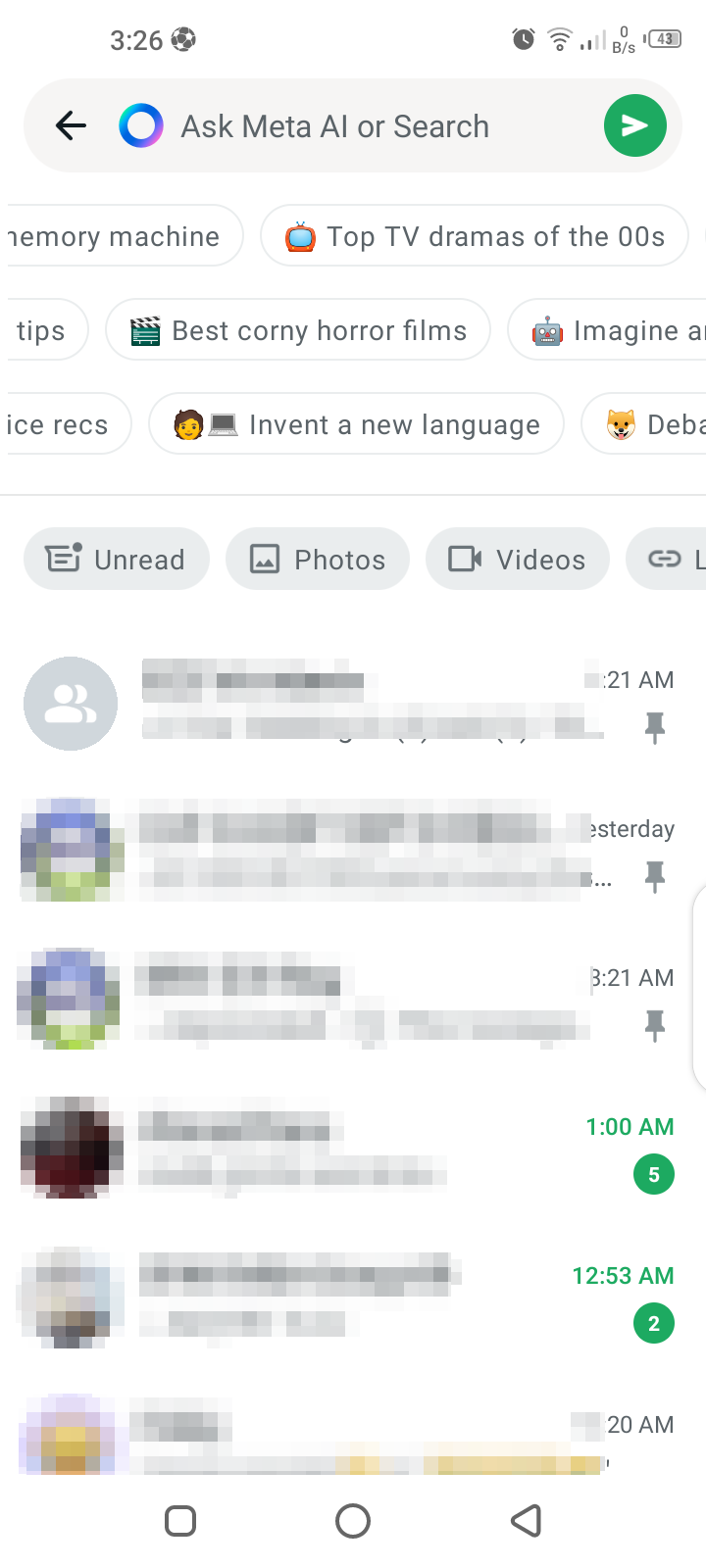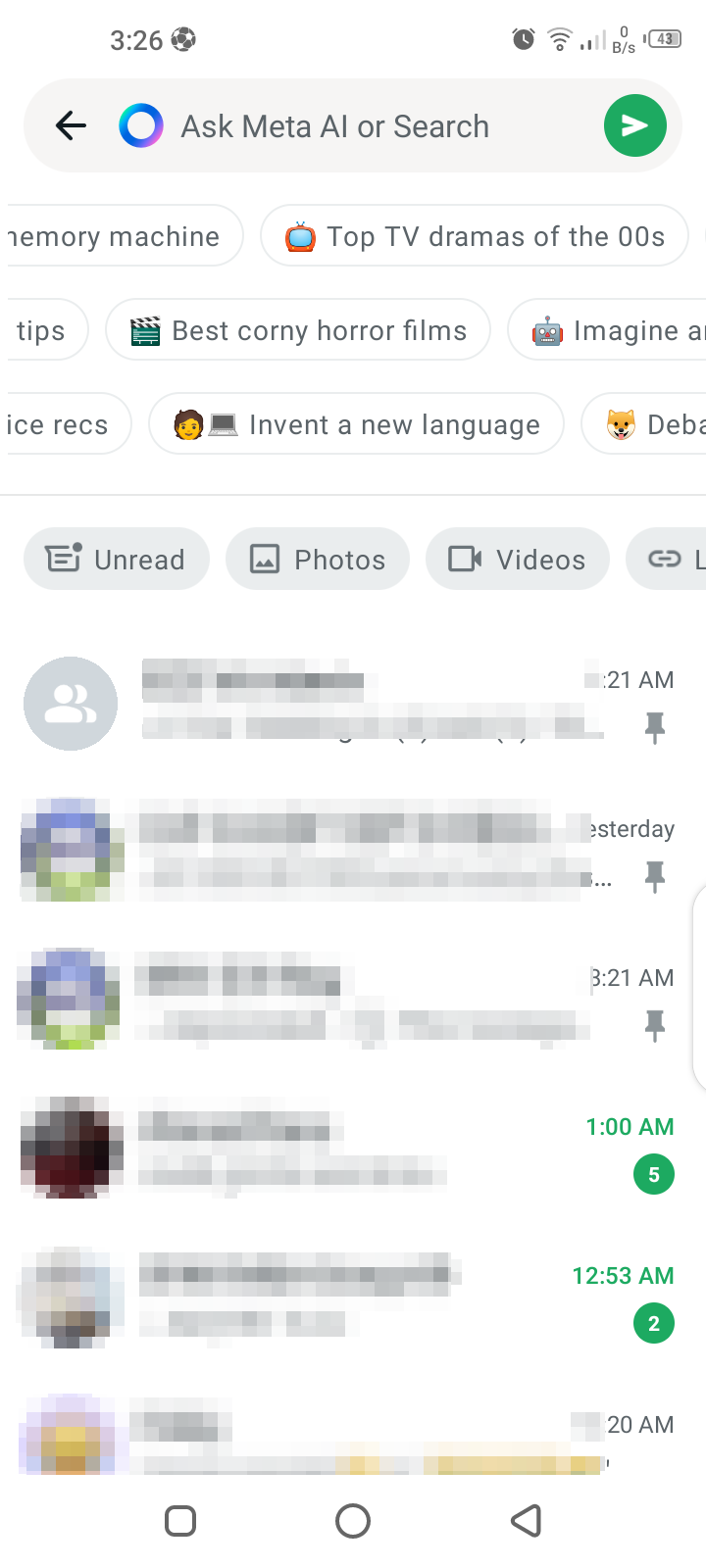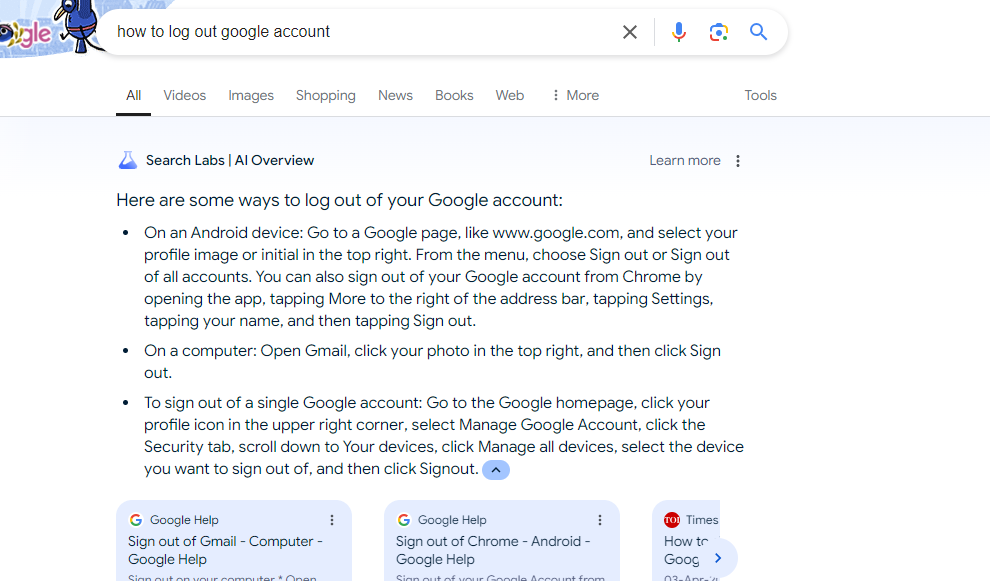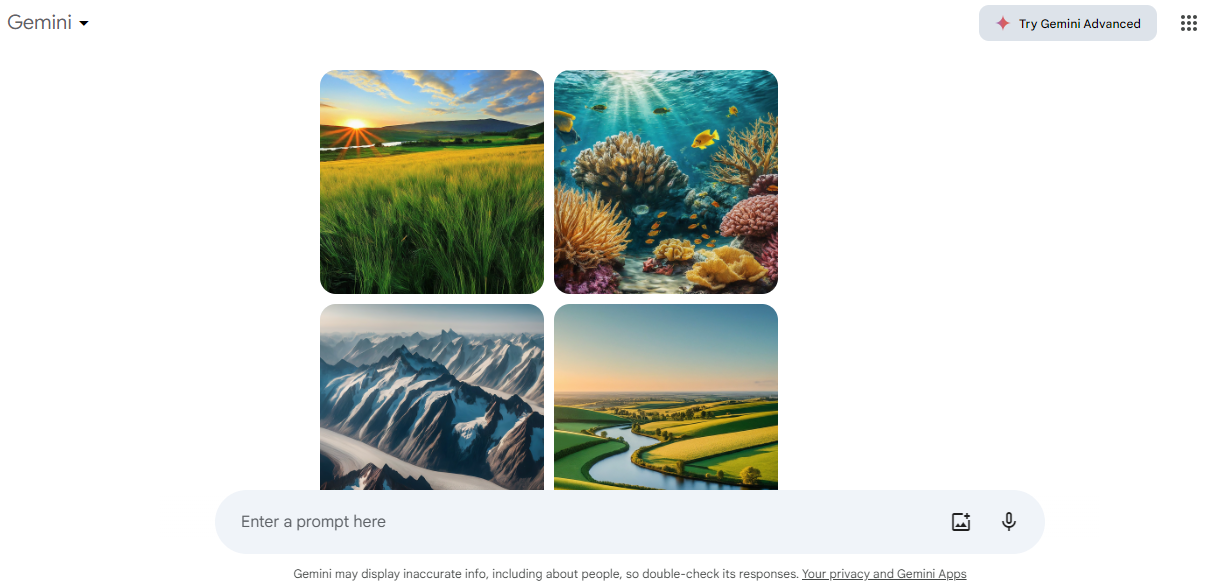Why I Don\'t Want Generative AI Shoved Into Every App I Use
Generative AI is undoubtedly an incredible technological breakthrough. But, really, does it have to be shoved into every single app and service I use?
Here's why I think it doesn't.
1 Privacy Is a Concern With GenAI
One key concern of generative AI is privacy and security.
Dedicated AI apps like ChatGPT or Gemini can manage this risk to an extent. But when these features start intruding into Google Docs, Messages, and other day-to-day apps, it becomes really challenging to ensure that sensitive personal information isn't exposed to AI.
While AI companies' privacy policies vary, let's take OpenAI as an example. OpenAI mentions that it collects “Personal Information that is included in the input, file uploads, or feedback” and can share it with third parties.
Likewise, if you haven't opted out of OpenAI using your data to train its models, it's likely that your info has already been used for training. Not to forget, researchers have been able to extract ChatGPT's training data, as per 404Media.
Even when the privacy policies of Big Tech companies state that they don't share or use your data, it's hard to rely on their word, given their unimpressive track record.
2 Forcing AI Into Apps Makes the Experience Annoying



If you've accidentally tapped on the Meta AI icon while searching for a chat in WhatsApp, you know how annoying these features can be. Why would anyone in their right mind launch WhatsApp on their phone to “Imagine a tasty dessert” or “Invent a new language”?
It's not just WhatsApp or Meta; you'll find Google's Gemini AI popping up in Messages, Gmail, Drive, and other places. AI Overviews in Google Search also deserve a mention here.
What makes these generative AI features particularly annoying is that they make the user interface of these apps ugly, especially when they are made unnaturally prominent.
3 Generative AI Is Not Always Helpful

There are use cases where AI is greatly useful, and there are circumstances where it isn't. Or at least not yet.
Unfortunately, tech companies are more interested in jumping on the AI bandwagon without considering whether it will actually be helpful for users.
Likewise, the trend of shipping half-baked AI features, which are far from helpful for users, doesn't improve matters. Again, AI Overviews in Google Search, which once told a user to add glue to pizza, are a great example.
4 Using GenAI Kills Originality and Authenticity

I may use AI to draft a toneless, professional email. But when I'm sending my family a message or commenting on my friend's post, I can't imagine using AI. There are also other reasons social platforms should not have generative AI.
Similarly, GenAI in creative tools can be helpful, but not all creative software needs AI. Also, creative professionals continue to debate whether such tools can match the originality and thoughts of a sentient human artist.
So, it doesn't really make sense to use generative AI in areas that require authenticity and uniqueness.
5 Wasted Energy
Training and using generative AI requires a substantial amount of energy. To give an idea, training OpenAI's GPT-3 consumed an estimated 1287 MWh [PDF] of energy. Likewise, according to IEA, a ChatGPT request consumes nearly 10 times more power than a Google search, while this amount of energy could power an average US household for 120 years.
It's easier to justify large amounts of energy usage when generative AI is used for actual, productive work. However, shoving GenAI into every app results in a waste of energy (and, of course, more carbon emissions) without any real benefit.
To sum up, as useful as generative AI may be, it's certainly not a technology that's necessary for each app to function. On the contrary, it raises privacy concerns, makes the UI clunky, and results in more wasted energy. Most importantly, GenAI can have negative effects on your health.
The above is the detailed content of Why I Don\'t Want Generative AI Shoved Into Every App I Use. For more information, please follow other related articles on the PHP Chinese website!

Hot AI Tools

Undresser.AI Undress
AI-powered app for creating realistic nude photos

AI Clothes Remover
Online AI tool for removing clothes from photos.

Undress AI Tool
Undress images for free

Clothoff.io
AI clothes remover

Video Face Swap
Swap faces in any video effortlessly with our completely free AI face swap tool!

Hot Article

Hot Tools

Notepad++7.3.1
Easy-to-use and free code editor

SublimeText3 Chinese version
Chinese version, very easy to use

Zend Studio 13.0.1
Powerful PHP integrated development environment

Dreamweaver CS6
Visual web development tools

SublimeText3 Mac version
God-level code editing software (SublimeText3)

Hot Topics
 1677
1677
 14
14
 1429
1429
 52
52
 1333
1333
 25
25
 1278
1278
 29
29
 1257
1257
 24
24
 How to Build MultiModal AI Agents Using Agno Framework?
Apr 23, 2025 am 11:30 AM
How to Build MultiModal AI Agents Using Agno Framework?
Apr 23, 2025 am 11:30 AM
While working on Agentic AI, developers often find themselves navigating the trade-offs between speed, flexibility, and resource efficiency. I have been exploring the Agentic AI framework and came across Agno (earlier it was Phi-
 OpenAI Shifts Focus With GPT-4.1, Prioritizes Coding And Cost Efficiency
Apr 16, 2025 am 11:37 AM
OpenAI Shifts Focus With GPT-4.1, Prioritizes Coding And Cost Efficiency
Apr 16, 2025 am 11:37 AM
The release includes three distinct models, GPT-4.1, GPT-4.1 mini and GPT-4.1 nano, signaling a move toward task-specific optimizations within the large language model landscape. These models are not immediately replacing user-facing interfaces like
 How to Add a Column in SQL? - Analytics Vidhya
Apr 17, 2025 am 11:43 AM
How to Add a Column in SQL? - Analytics Vidhya
Apr 17, 2025 am 11:43 AM
SQL's ALTER TABLE Statement: Dynamically Adding Columns to Your Database In data management, SQL's adaptability is crucial. Need to adjust your database structure on the fly? The ALTER TABLE statement is your solution. This guide details adding colu
 Rocket Launch Simulation and Analysis using RocketPy - Analytics Vidhya
Apr 19, 2025 am 11:12 AM
Rocket Launch Simulation and Analysis using RocketPy - Analytics Vidhya
Apr 19, 2025 am 11:12 AM
Simulate Rocket Launches with RocketPy: A Comprehensive Guide This article guides you through simulating high-power rocket launches using RocketPy, a powerful Python library. We'll cover everything from defining rocket components to analyzing simula
 DeepCoder-14B: The Open-source Competition to o3-mini and o1
Apr 26, 2025 am 09:07 AM
DeepCoder-14B: The Open-source Competition to o3-mini and o1
Apr 26, 2025 am 09:07 AM
In a significant development for the AI community, Agentica and Together AI have released an open-source AI coding model named DeepCoder-14B. Offering code generation capabilities on par with closed-source competitors like OpenAI
 The Prompt: ChatGPT Generates Fake Passports
Apr 16, 2025 am 11:35 AM
The Prompt: ChatGPT Generates Fake Passports
Apr 16, 2025 am 11:35 AM
Chip giant Nvidia said on Monday it will start manufacturing AI supercomputers— machines that can process copious amounts of data and run complex algorithms— entirely within the U.S. for the first time. The announcement comes after President Trump si
 Runway AI's Gen-4: How Can AI Montage Go Beyond Absurdity
Apr 16, 2025 am 11:45 AM
Runway AI's Gen-4: How Can AI Montage Go Beyond Absurdity
Apr 16, 2025 am 11:45 AM
The film industry, alongside all creative sectors, from digital marketing to social media, stands at a technological crossroad. As artificial intelligence begins to reshape every aspect of visual storytelling and change the landscape of entertainment
 Guy Peri Helps Flavor McCormick's Future Through Data Transformation
Apr 19, 2025 am 11:35 AM
Guy Peri Helps Flavor McCormick's Future Through Data Transformation
Apr 19, 2025 am 11:35 AM
Guy Peri is McCormick’s Chief Information and Digital Officer. Though only seven months into his role, Peri is rapidly advancing a comprehensive transformation of the company’s digital capabilities. His career-long focus on data and analytics informs




